- 15
- 28
Man throws a frag grenade into a billiard to intimidate the owners for not paying a tax to the local gang. six people were wounded and two killed in the attack
- 29
- 27
The 1996 Manchester bombing was an attack carried out by the Provisional Irish Republican Army (IRA) on 15 June 1996. The IRA detonated a 1,500-kilogram (3,300 lb) lorry bomb on Corporation Street in the centre of Manchester, England. It was the biggest bomb detonated in Great Britain since the Second World War. It targeted the city's infrastructure and economy and caused significant damage, estimated by insurers at £700 million (equivalent to £1.4 billion in 2021), a sum surpassed only by the 1993 Bishopsgate bombing, also by the IRA.
- 36
- 196
On 4 August 2020, a large amount of ammonium nitrate stored at the Port of Beirut in the capital city of Lebanon exploded, causing at least 218 deaths, 7,000 injuries, and US$15 billion in property damage, as well as leaving an estimated 300,000 people homeless. A cargo of 2,750 tonnes of the substance (equivalent to around 1.1 kilotons of TNT) had been stored in a warehouse without proper safety measures for the previous six years after having been confiscated by Lebanese authorities from the abandoned ship MV Rhosus. The explosion was preceded by a fire in the same warehouse.
The blast was so powerful that it physically shook the whole country of Lebanon. It was felt in Turkey, Syria, Palestine, Jordan, and Israel, as well as parts of Europe, and was heard in Cyprus, more than 240 km (150 mi) away. It was detected by the United States Geological Survey as a seismic event of magnitude 3.3 and is considered one of the most powerful non-nuclear explosions on record.
Fire and first explosion
Around 17:45 local time (14:45 UTC) on 4 August 2020, a fire broke out in Warehouse 12 at the Port of Beirut. Warehouse 12, which was waterside and adjacent to the grain elevator, stored the ammonium nitrate that had been confiscated from Rhosus alongside a stash of fireworks. Around 17:55 local time (14:55 UTC), a team of nine firefighters and one paramedic, known as Platoon 5, was dispatched to fight the fire. On arrival the fire crew reported over the radio that there was "something wrong" as the fire was immense and produced "a crazy sound."
The moment of the explosion was captured during a BBC interview.
Collated time of arrival vs distance from analysis of social media video footage, with the best estimate (0.50 kt TNT) and reasonable upper limit (1.12 kt TNT) curves determined from regression analysis.
Despite inefficient transmission of the shock waves into the ground,[c] the United States Geological Survey measured the event as a 3.3 local magnitude earthquake, while the Jordan Seismological Observatory reported that it was equivalent to a 4.5 ML earthquake. A study of seismic signatures of the explosion by the Federal Institute for Geosciences and Natural Resources in Germany produced a yield estimate between 0.5 and 1.1 kt of TNT.
An independent estimate by the International Monitoring System of the Comprehensive Nuclear-Test-Ban Treaty Organization based on infrasonic data obtained an explosive yield equivalent to 0.5–1.1 kt of TNT, making it the sixth-largest accidental artificial non-nuclear explosion in human history.
Damage
The damage from the blast affected over half of Beirut, with the likely cost above US$15 billion and insured losses at around US$3 billion. Approximately ninety percent of the city's hotels were damaged and three hospitals completely destroyed, while two more suffered damage. Dozens of injured people brought to nearby hospitals could not be admitted because of the damage to the hospitals. Windows and other installations of glass across the city were shattered.
S. Dagher Building, located opposite the port's free zone entrance, suffered extensive damage
The Port of Beirut as seen from the International Space Station a week after the disaster, with inset of an enlarged view of the explosion crater (top left)
Saint George Hospital University Medical Center before disaster
One of the city's largest medical facilities, was less than 1 kilometer from the explosion, and was so badly damaged that staff were forced to treat patients in the street. Four nurses died from the initial blast, fifteen patients died after their ventilators stopped working, and several child cancer patients were injured by flying glass. Within hours, after discharging all its patients and sending some to other facilities, Saint George Hospital was forced to close.
In the first week after the explosion, civilians gathered in hundreds to volunteer to clean up the debris on the streets and inside homes and businesses in Gemmayze, Achrafieh, and Karantina neighbourhoods. Many civil society organizations offered equipment and food to the volunteers, while many residents and businesses opened their homes and hotels for free to those who lost their homes in the blast.
On 6 August 2020, the Lebanese Forces Party's executive chairman Samir Geagea was the first politician to visit Beirut and launched from there a relief committee, Ground-0, under the leadership of the former minister Dr. May Chidiac to support in rebuilding Beirut. In December 2020, the committee achieved repairing 709 houses, assisted 5300 individuals and 2300 families, distributed 14000 food rations, made 2540 medical consultations, and provided 2030 individuals with medicine. In addition, the committee distributed more than 150 scholarships for Beirut schools' students.
- 18
- 94
Overview: ISIS-inspired terrorists conducted a series of suicide attacks against churches and hotels across Sri Lanka on Easter Day, resulting in hundreds of casualties. Then ISIS leader Abu Bakr al-Baghdadi publicly praised the attacks, illustrating that ISIS remains determined, following its defeat in Syria and Iraq, to continue the fight from its global branches and networks and by inspiring attacks. The attacks led to isolated outbreaks of anti-Muslim violence, which the government made efforts to stop, though some observers deemed these efforts insufficient. Sri Lanka also conducted prosecutions against members of the Liberation Tigers of Tamil Eelam (LTTE), a terrorist insurgent group that fought the government for 26 years until its defeat in 2009.
Following the Easter attacks, Sri Lanka sought to improve its CT efforts by engaging the United States on improving border security and soliciting assistance for the Attorney General's office, which is charged with prosecuting the attack perpetrators. Sri Lanka is not a member of the Global Coalition to Defeat ISIS, but participated as an observer at the Political Directors meeting in June. The country's secretary of defense and inspector general of police at the time of the April 21 attacks were both arrested for failing to act on available intelligence, which warned of pending attacks.
2019 Terrorist Incidents:
On Easter Sunday, Sri Lankan citizens who pledged allegiance to ISIS detonated backpack suicide bombs in four hotels and three churches in the greater Colombo area and Batticaloa, killing more than 260 people, including five Americans.
Legislation, Law Enforcement, and Border Security: The Government of Sri Lanka continued to use the Prevention of Terrorism Act (PTA), enacted in 1979 as a wartime measure, which gives the police broad powers to search, arrest, and detain individuals. After the Easter attacks, the government issued a four-month state of emergency, which also gave search, detain, and arrest powers to the military. More than 1,000 individuals were arrested under the PTA in wake of the attacks, although just more than 100 remained in custody at year's end. A draft Counter Terrorism Act (CTA) set to repeal and replace the PTA remained under debate in parliament at year's end. According to international and domestic legal experts, the CTA would clarify the definition and punishment for terrorist activities and provide a current schedule of designated terrorist organizations. The first version of the schedule designated three domestic terrorist organizations, all of which had been connected to the Easter attacks. In August, parliament passed the “Mutual Assistance in Criminal Matters (Amendment) Act, No. 24 of 2018 (MACMA),” which made a number of improvements to Sri Lanka's processing of mutual legal assistance requests, which could help in prosecuting terrorism cases.
The Special Task Force is a paramilitary unit of the Sri Lanka Police specializing in CT and counterinsurgency operations and charged with ensuring security of top government and foreign government officials, protecting sensitive targets, and suppressing activities that pose a threat to national security. Within the regular police structure, there is a Counter-Terrorism Investigation Division, which was moved under the Criminal Investigation Division in May. The police remained under the Ministry of Defense at year's end. The Easter attacks highlighted gaps in information sharing among Sri Lanka's security sector agencies. Reforms to address these issues were underway at year's end. Sri Lanka Police cooperated extensively with the FBI on the investigation into the Easter attacks. All suspects related to these attacks are currently in custody. Indictments for these attacks were pending at year's end.
Sri Lanka's border and maritime security remained vulnerable. The government is working with the UN, along with Japan, to enhance border management systems at Colombo's international airport. The Sri Lankan government also expanded its partnership with the United States to secure its maritime border. The U.S. Coast Guard, under the Department of State's EXBS (Export Control and Related Border Security) program, continued to train Sri Lankan Coast Guard and Navy personnel on maritime law enforcement and security operation, and the Government of Sri Lanka continued to cooperate with U.S. Customs and Border Protection and the Department of Energy through the container security initiative, “Megaports Initiative.” The U.S. Department of Defense continues regular engagements with the Sri Lankan Navy Special Boat Squadron and Fast Attack Flotilla to enhance maritime security through the expansion of vessel board, search, and seizure capabilities.
Sri Lanka concluded two major trials of terrorist attacks from the LTTE period. On January 10, the North Central Provincial High Court sentenced two former LTTE members to 185 years' rigorous imprisonment for shooting down a Sri Lankan Air Force plane in March 2000, which killed 37 people. On January 23, the Anuradhapura High Court sentenced two former LTTE members to 25 years' rigorous imprisonment for the murder of eight people, including an Army officer, in 2007. Throughout the year, police arrested several people who are alleged to have had ties to the LTTE for possession of weapons and ammunition.
Countering the Financing of Terrorism: Sri Lanka belongs to APG, a FATF-style regional body. Sri Lanka's FIU is a member of the Egmont Group. In October, FATF removed Sri Lanka from its grey list after Sri Lanka completed an action plan to address the strategic deficiencies in its AML/CFT system.
Countering Violent Extremism: Following the April attacks, the Sri Lankan government established a new office under the Ministry of Defense to create new CVE policies to counter violent extremism. Discussions of education reforms and other measures were underway at year's end.
International and Regional Cooperation: Sri Lanka has actively sought assistance on CT issues from the United Nations after the attacks, as well as from key donor countries. The EU, the United Kingdom, Australia, Japan, and India have all pledged CT assistance – with India offering $50 million to the newly-elected Rajapaksa administration. Sri Lanka is a partner nation in the Global Initiative to Combat Nuclear Terrorism.
- 43
- 37
On 21 April 2019, Easter Sunday, three churches in Sri Lanka and three luxury hotels in the commercial capital, Colombo, were targeted in a series of coordinated ISIS-related terrorist suicide bombings. Later that day, there were smaller explosions at a housing complex in Dematagoda and a guest house in Dehiwala.
Wiki: https://en.wikipedia.org/wiki/2019_Sri_Lanka_Easter_bombings
- 2
- -7
- 14
- 38
Anti-Tank Mine Obliterates Two Azerbaijani Journalists and an Official (Kalbajar, Azerbaijan; 6/2021; 1 Video Of Vehicle Activating The Mine, Plus 1 Video Of The Aftermath; Excellent Background History/Story Is Also Included In Description)
"A landmine explosion in Azerbaijan has killed two Azerbaijani journalists and an official, authorities said. Four others were injured in Friday's incident, which saw an anti-tank mine blow up a truck at about 11am local time (07:00GMT), Azerbaijan's interior ministry and the office of the prosecutor general said in a statement. The three victims were identified as local official A. A., M. I, a reporter working for state news agency AzerTag, and S. A, a journalist with the state-run AzTV station. The blast came amid a border dispute between Armenia and Azerbaijan, which fought a six-week war over the Nagorno-Karabakh region last year.
Jeyhun Bayramov, Azerbaijan's foreign minister, said he was “deeply saddened” as he called on Armenia to hand over maps locating mined areas. The Azerbaijani government has repeatedly accused Armenia of refusing to submit such maps. “Every day they continue to refuse this request, more lives are endangered!” Bayramov said. Similarly, Arif Aliyev, head of the Yeni Nesil (New Generation) Journalists Union, said the reporters should have had access to maps of mined areas. “I am blaming the international community and organisations,” Aliyev said. “Months have already passed and we still cannot get maps of mined areas.” Kalbajar is one of the regions that was handed back to Azerbaijan after last year's conflict.
Elchin Shikhly, head of the Azerbaijani Journalists Union, accused the Armenian state of “violating international law”. “The mines have been planted recently in that area of Kalbajar,” Shikhly told. “This means that Armenia is engaged in terrorism and sabotage at the state level. The international community must urgently react to this issue.” At the time of publishing, Armenian officials had not offered any comment on the explosion.
Border dispute
Throughout their decades-long conflict, Azerbaijan and Armenia have often denied the other side's claims. Azerbaijan a week ago said one of its soldiers was wounded after Armenian forces opened fire along the neighbours' shared border, accusations that Yerevan denied. The alleged incident came a day after Azerbaijan captured six Armenian servicemen in Kalbajar. Armenia said its forces were carrying out engineering work in the area, while Azerbaijan said the soldiers were part of a “reconnaissance and sabotage group”. Yerevan also claimed last week that one of its soldiers was killed after shooting broke out with Azerbaijan's forces, an incident Baku denied responsibility for. In early May, Armenia accused Azerbaijan's military of crossing its southern border to “lay siege” to a lake shared by the two countries.
Nagorno-Karabakh conflict
The latest tensions come after last year's conflict between the rivals, which ended in November. Azerbaijan was viewed as winning the war, with its troops driving ethnic Armenian forces out of swathes of territory they had controlled since the 1990s in and around Nagorno-Karabakh. Nagorno-Karabakh is internationally recognised as part of Azerbaijan, even by Armenia, but is populated by ethnic Armenians. Russia eventually brokered a ceasefire to bring the fighting to a halt, which locked in Azerbaijan's territorial gains. The conflict killed more than 6,000 people on both sides and led to a political crisis in Armenia, where Prime Minister Nikol Pashinyan was widely castigated for what was seen by many as a humiliating defeat. Pashinyan, 45, said he had no choice but to concede or see his country's forces suffer even bigger losses. Pashinyan announced snap parliamentary polls under pressure from opposition protesters in the wake of last year's conflict. The election is scheduled for June 20.
Referred to as the First Nagorno-Karabakh war, Armenia fought with Azerbaijan over the region in the 1990s in a conflict which killed at least 30,000 people. Heavy battles in 2016 lasted for four days in April of that year, and last year's clashes marked the worst fighting since the mid-1990s."
R.I.P. to the victims, and may their family and friends find peace.





























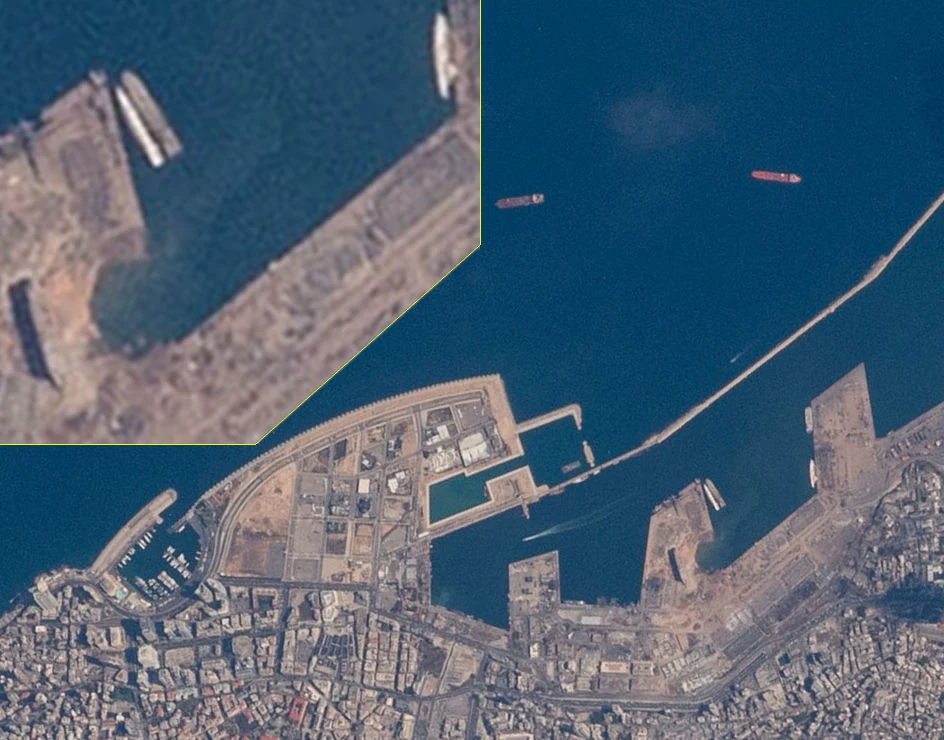




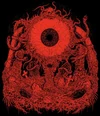










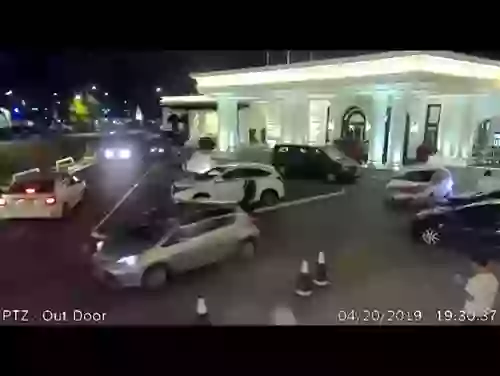



.webp?x=8)







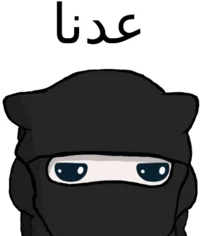



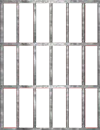


















 Slavshit
Slavshit

 Sandshit
Sandshit
